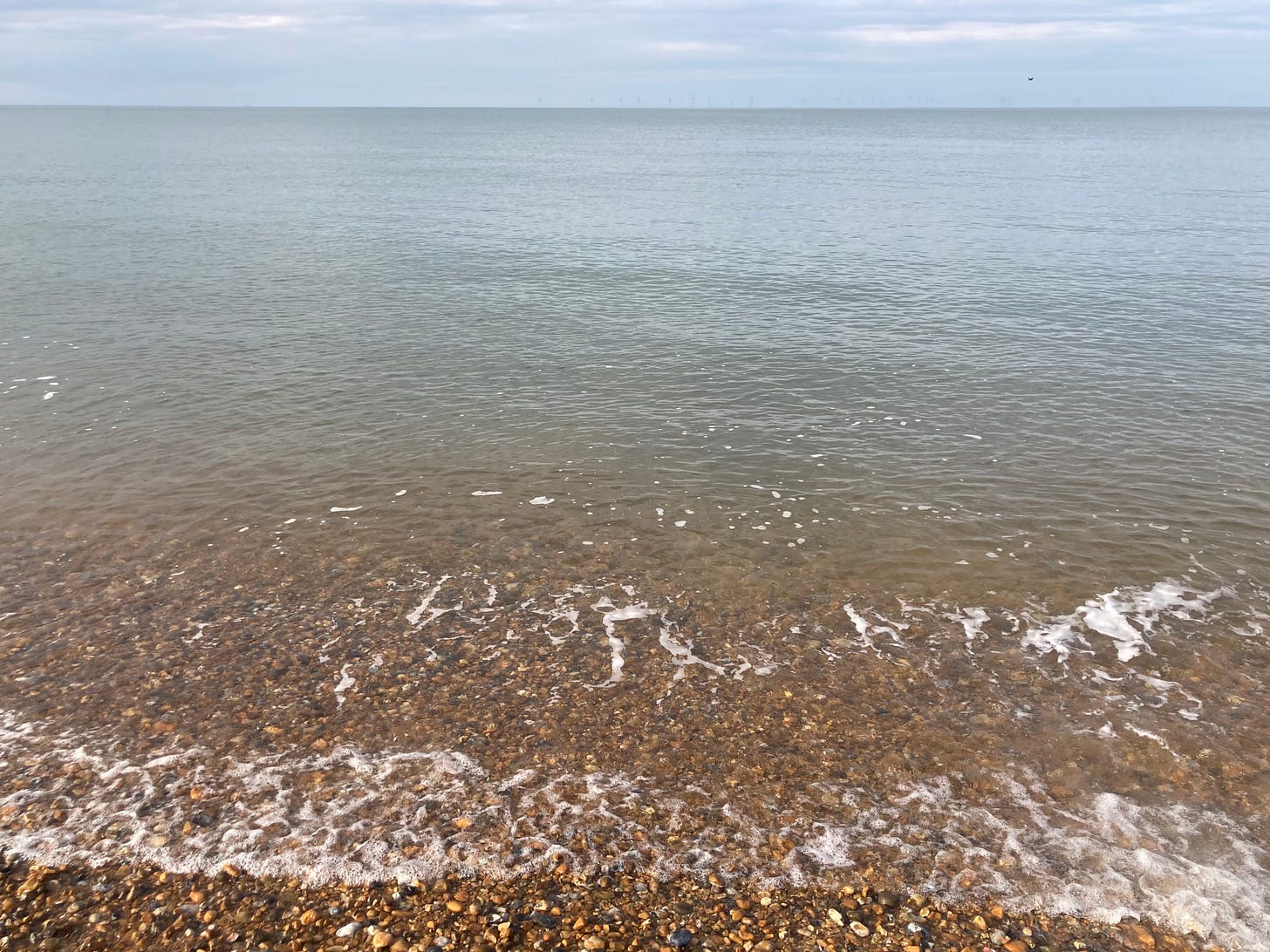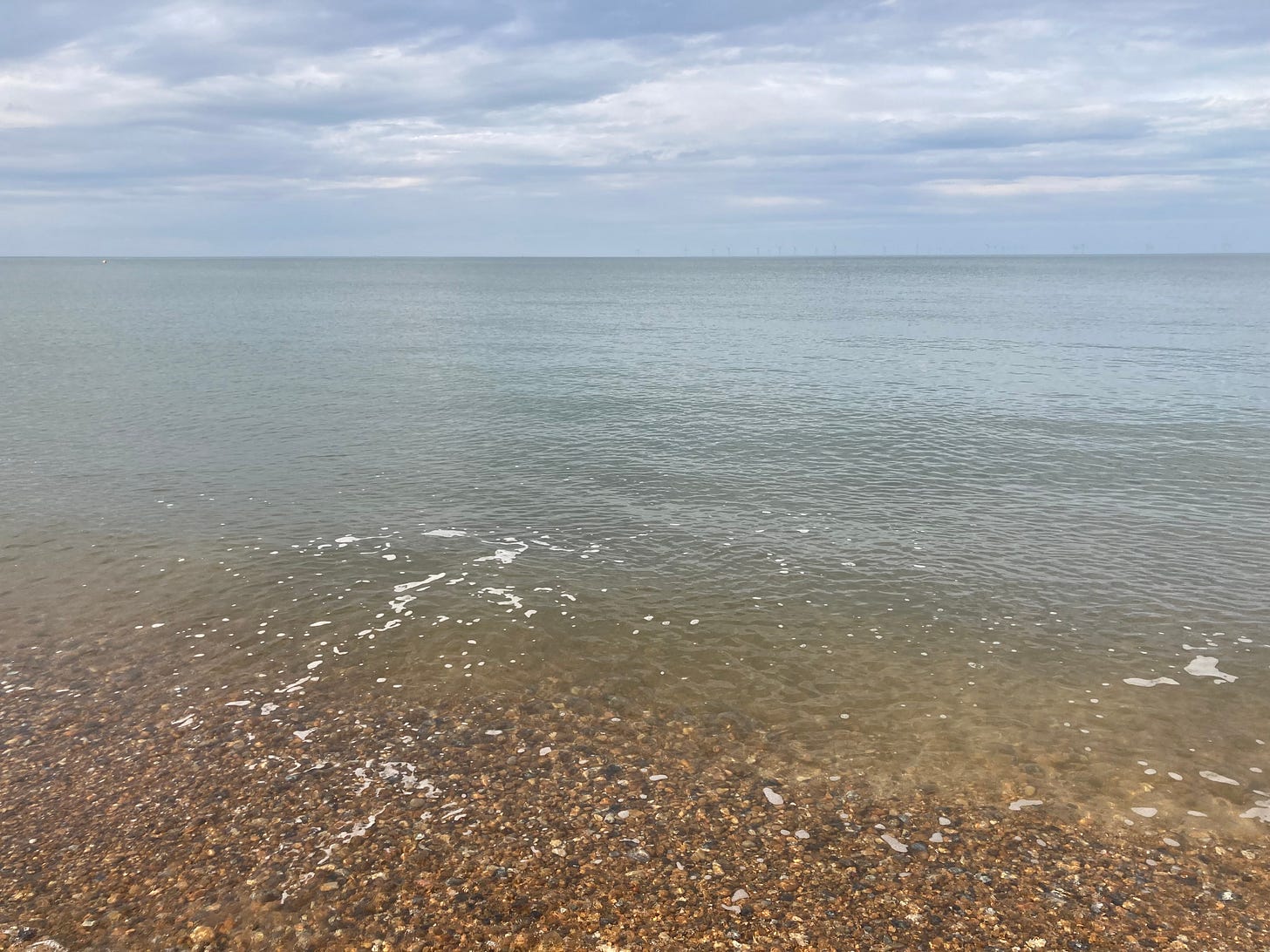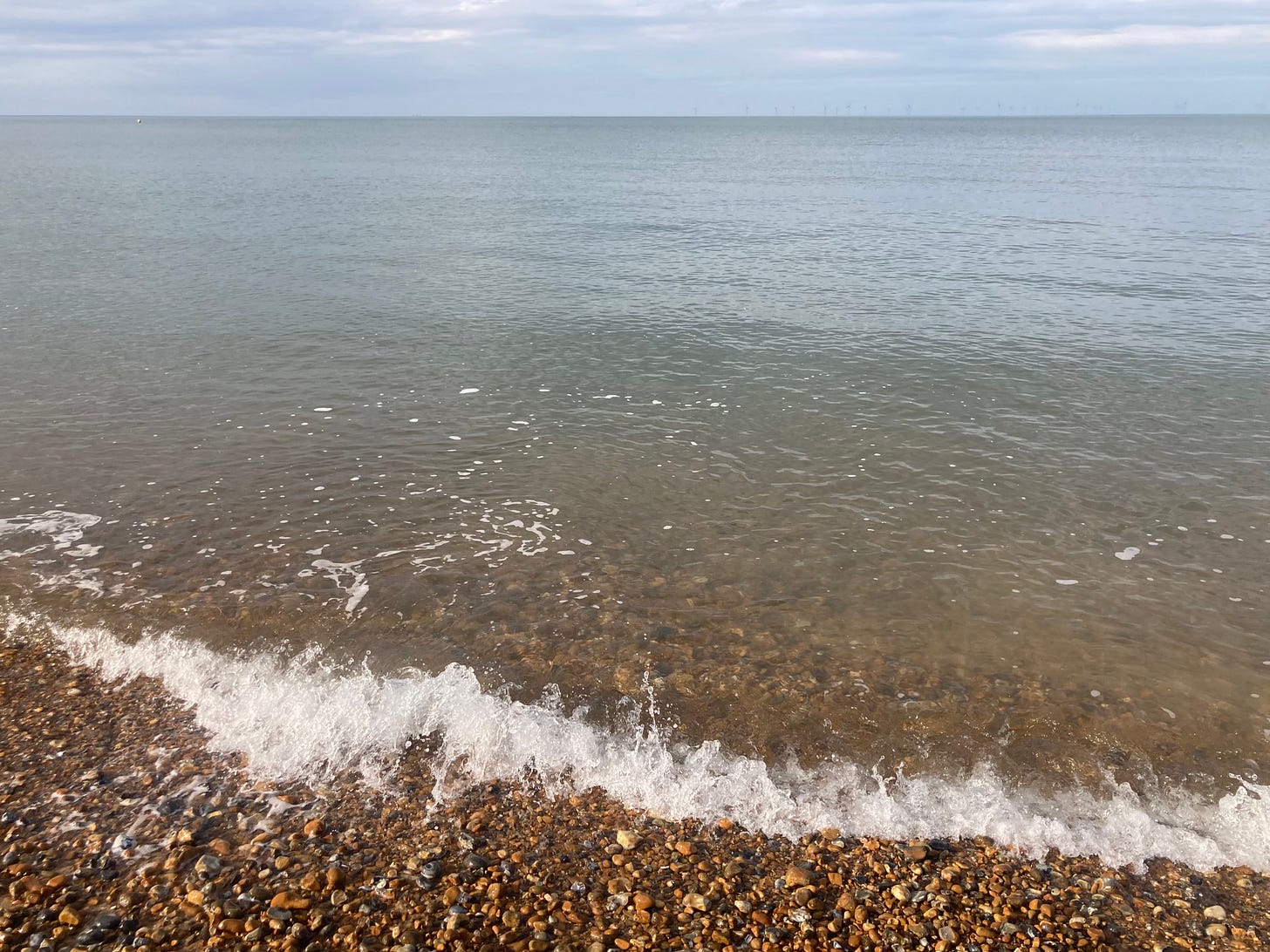We always return to the water
The Great Silkie of Sule Skerry
The last time I went in the water, it was at this beach. The air was cold - November - and the water was grey and biting and the pebbles shifted underfoot and my changing robe flapped, pressing back against me as I struggled to get into my clothes. The horizon was straight and the ocean was flat and all the colours - the blue, the grey, the green, the brown - were shifting, uncertain, perfect.
I did not swim through this winter. It is the first time for many years. There are plenty of reasons I could point at, but really, the simple truth is I didn’t want to. Last week I walked by the sea and I saw a woman, red in the waves. I didn’t think she was mad. I knew the wild aliveness, the line of ice at her edges, the burning of her insides. I knew how wonderful she would feel afterwards. And still, I just didn’t want to.
This weekend, I went to that same stretch of beach. The clouds cleared and there was blue in the sky behind the dappling of grey and white. The water was so flat, so still. Steady. It was clear enough that I could see the pebbles pulling away from me with the falling tide. There was sun. And finally, I wanted to go back in the water.
The last time I wrote about this stretch of water, I told you a story about selkies. Creatures of the ocean, seals in the waves, they can shed their skins to take human form on land. But however long they spend landlocked, they will always return to the water.
There is another sad selkie story I want to tell you. It is from the Orkney and Shetland ballad ‘The Great Silkie of Sule Skerry’. This time, it is a woman on the shore. This time the selkie is a man. She falls in love with this selkie man and gives birth to his child - but then he goes back to the waves. She does not trap him, does not force him to stay. He is out of his element, but he is a man, so he still retains the power to choose. He says he will return in seven years to pay the nursing fee.
After seven years her seal lover returns. He gives his son a golden chain and the two of them, though the boy has not known his father, though the mortal mother has nursed him all this time, go back to the waves together. The woman is left alone. Her child, who she raised alone, is lost to the waves, to the will of her lover. The years march on and the woman remarries, tries to forget. Her new husband goes hunting one day; he shoots two seals. When he returns home, he gives her a gold necklace as a present; he found it at the neck of one of the seals he shot. Her son and her lover, both dead.
The sea is not always safer, but still the selkies return to its seething waters. It is what they were always going to do. It is where they feel most alive.
So often our stories of the sea are laced with tragedy. The ocean is boundless, uncontrollable, unknown, still, to a greater degree than the land. It drops down to depths we cannot fathom; it rises and it falls and it keeps on doing so, ceaseless but not changeless. We as humans have been fascinated with it forever, have woven stories around it since stories first began. I am in the early stages of a new novel and I do not know its shape yet, but I know it will be filled with these stories; with the sea.
I go into water that is clear and cold and pale pale blue. One way, the sun sparkles on the shifting surface. The other way everything is colour, blue of water, gold of shingle. I swim out, straight out, away from shore, toward that horizon that was flat before, that is flat now, as it always will be. My wrists ache and my back throbs, the cold telling me where I am tight. It is so so beautiful and I can still breathe through it. The sea has not missed me. But I have undoubtedly missed it.






Thanks for sharing Nikita!